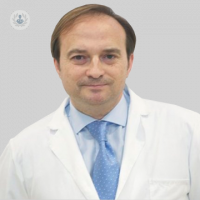Fertility preservation, the best techniques
Written by:
Has infertility increased in recent years in Spain?
Yes, we can respond with some certainty that in absolute terms there has been an increase in infertility in Spain and for various reasons but from my point of view the most important is the one that is determined by our demographic trends are well known.
Fundamentally the progressive aging of the population and increased life expectancy of all people but mainly women. And this is for my key factor that women by increasing their life expectancy increasingly delay the time when decide to become mothers for the first time.
What solutions exist for infertility?
The most desirable solution would be precisely based on changing the current demographic trend, and the woman mentalizase that should really try to be a mother as soon as possible. This turnaround may take some time and therefore we have 2 concrete solutions that we can apply today from the point of view of reproductive technology are egg donation and fertility preservation.
What is egg donation?
Is a method of in-vitro fertilization consisting of ovarian stimulation a woman who will donate their eggs to be received by a patient, the recipient woman, who after insemination of them will allow embryos to be transferred to your uterus.
It states that the donor is a young woman under 35 years and who is healthy, free from both communicable or infectious diseases, hereditary. This process occurs, it is true, some small discomfort in the donor woman, the product of the successive visits to do the clinic for controls and also the result of ovarian stimulation, in fact itself in the law of reproduction is implied the possibility gratify the donor woman for these annoyances they can ocasionársele.
The main advantage of this technique is that a woman who is coming or has already been through the menopause, even the next 50 years can be a mother, is the only technique that allows these women to be mothers.
What is the fertility preservation?
The fertility preservation has 2 sides. A fundamental, and that is what emerged, which is used to freeze eggs in an oncological patient. A woman who has a tumor in her childbearing age and also will be subjected to drug trafficking gonadotoxic-ment and therefore can damage the production of eggs in the ovary. This patient, after overcoming the disease, you can use these eggs and have the same probability of pregnancy that had had at the age in which they were frozen. And the second very important aspect and with increasing acceptance in recent times, which is what we call social and that is to delay motherhood. Demographic trends in our society make women more and more delayed age at which wants to be mother and then the chances of pregnancy are much lower.
Therefore with this technique, a woman around 30-35 years can freeze their eggs and when she wants to be a mother, for example around 40 years, will have the same chance of pregnancy than if she had undergone roadworthiness play in the moment that froze her eggs.



